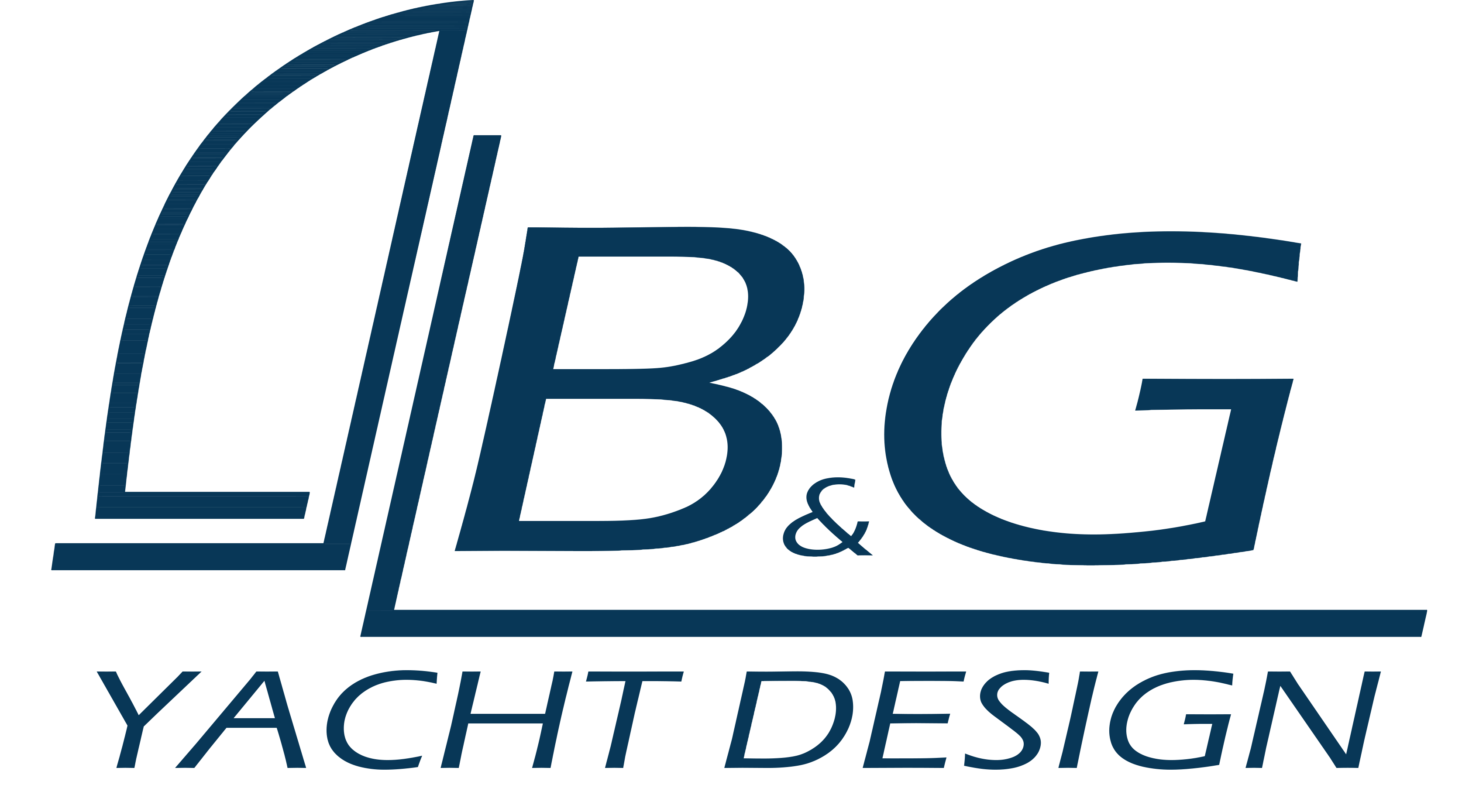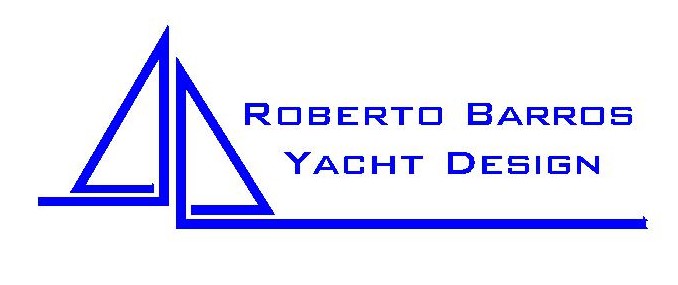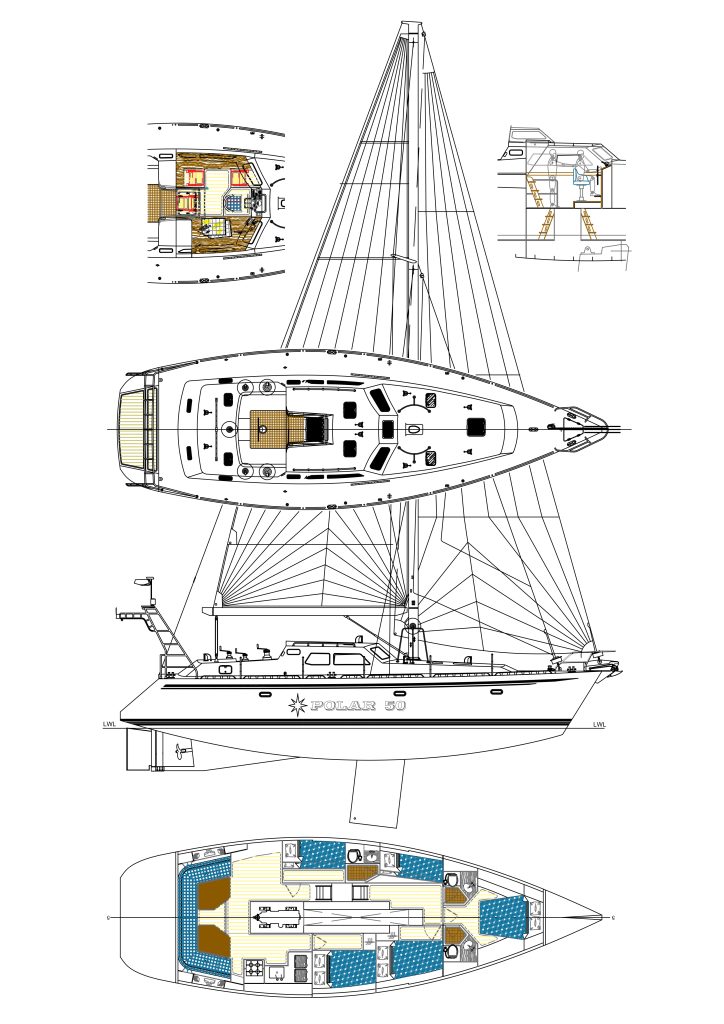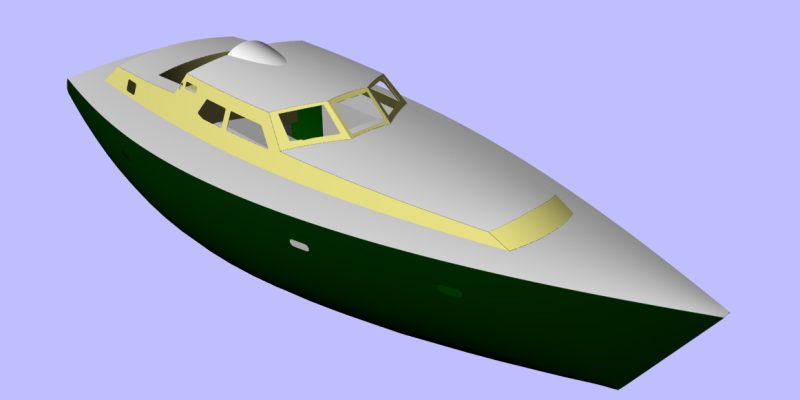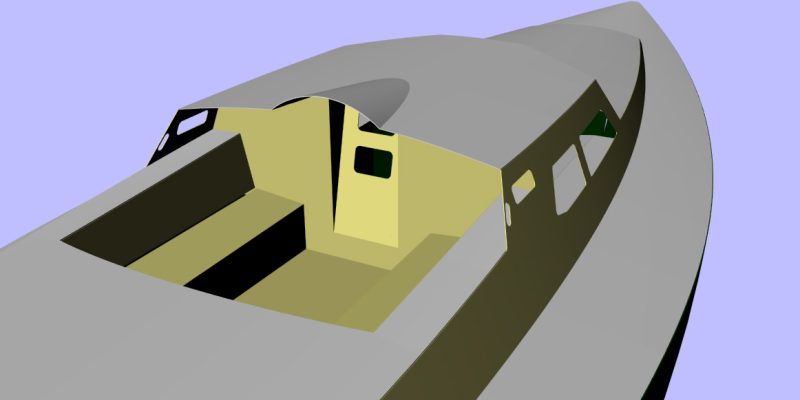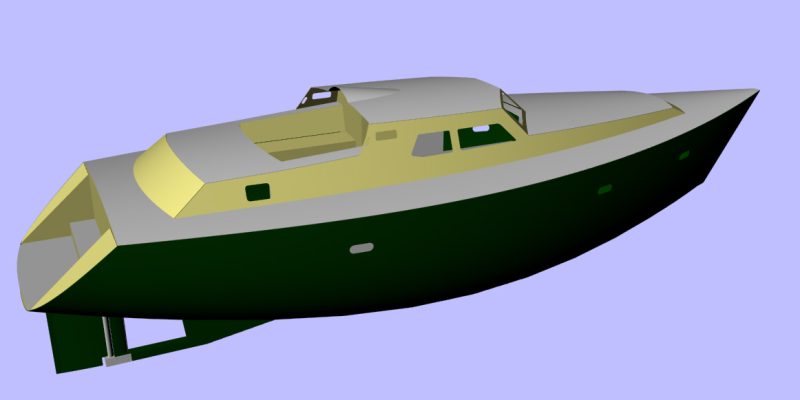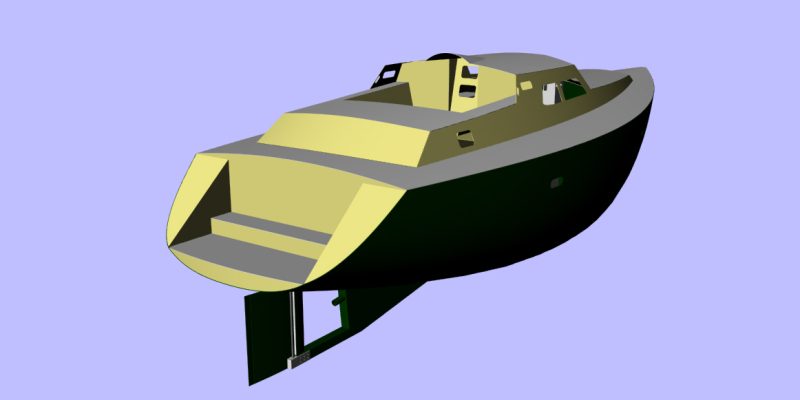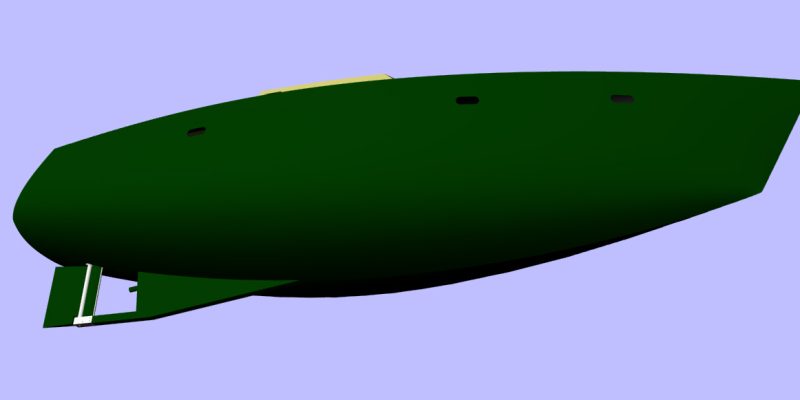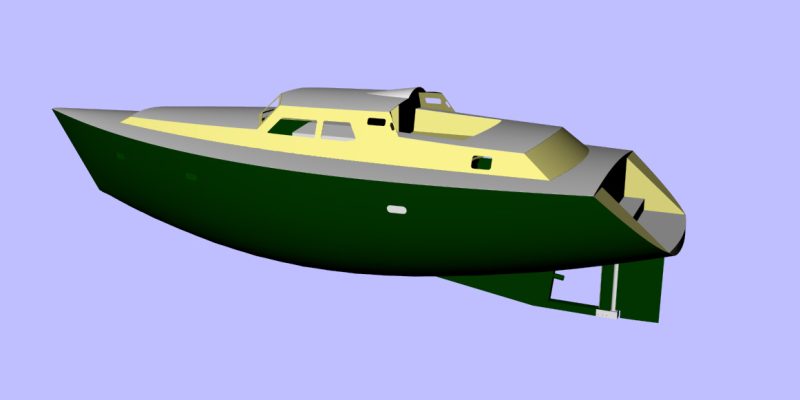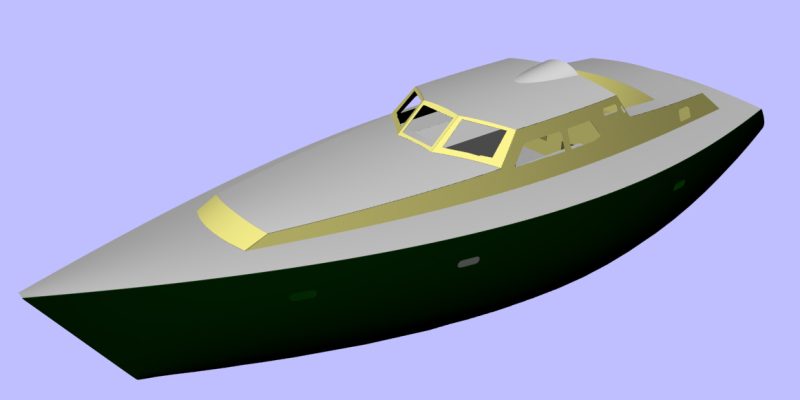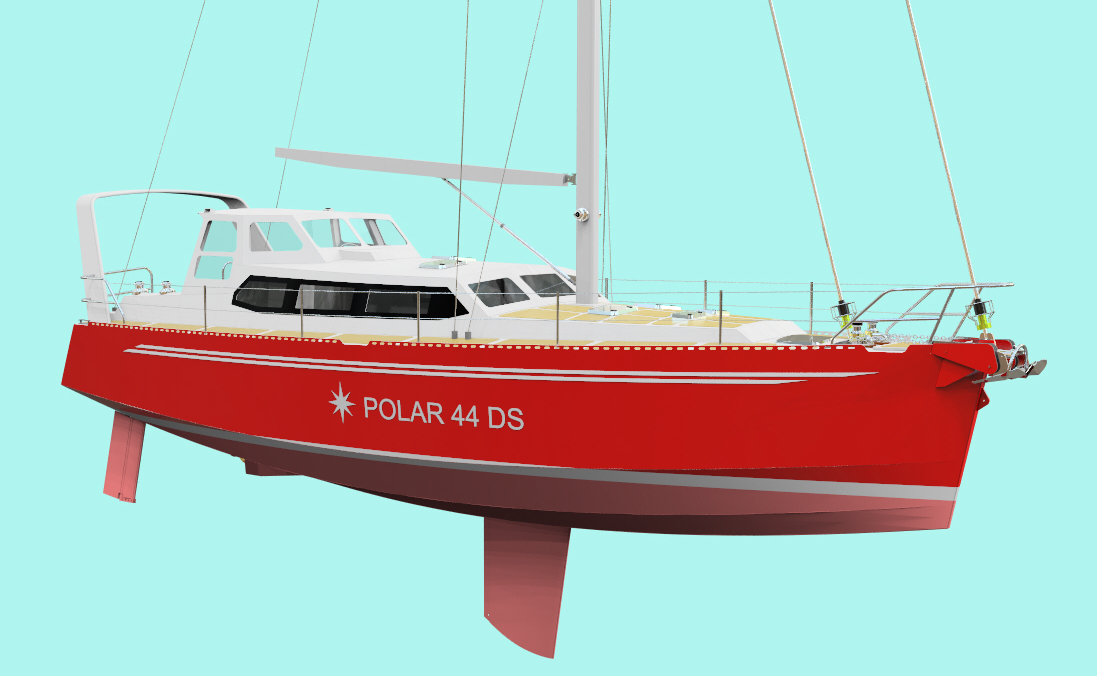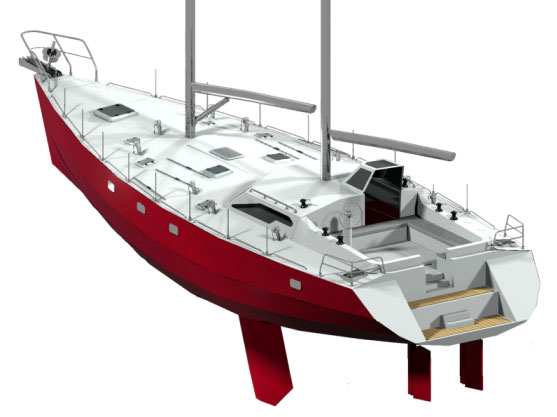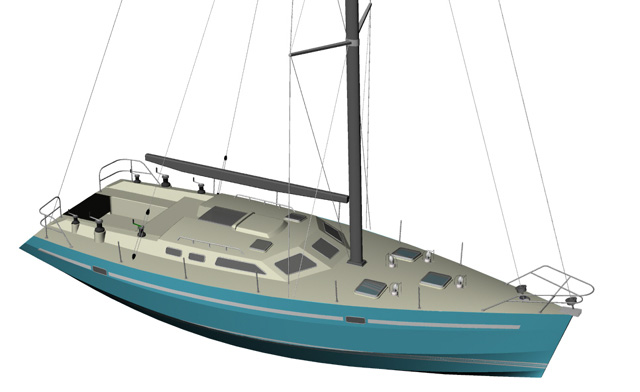Boat Plans - Polar 50
High latitude blue water cruising pilot house, centre cockpit yacht with swing keel.
The Polar 50 is a round bilge, swing keel blue water cruising sailboat with a pilot house and centre cockpit arrangement, providing maximum protection for the helmsman against the elements. Besides, we designed the pilot house walls with a 360 degrees vision for the helmsman by means of good-sized windows all around the trunk. The pilot’s seat is placed at the right height to allow for an adequate frontal view of the sea.
Designed with a swing keel, the Polar 50 can reach shallow areas, what allows for safe anchorage in areas prone to icebergs and to seek refuge from storms in places usually denied to monohull sailing yachts of the same size.
A special feature of the swing keel system is that it offers greater safety in case of unexpected grounding and collisions, avoiding damage to the hull.
The Polar 50 is truly a go anywhere boat, developed with our many years of experience and the input from our most accomplished customers.
This design came as corollary to a very gratifying cycle in our office. Thanks to some very successful metal boat designs we had produced before, we were commissioned by the world famous navigator Amyr Klink to produce custom plans for a yacht intended to spend a winter in the Antarctic continent. Our team, together with Gabriel Dias, a naval architect who worked with us at that time, developed the polar yacht Paratii, which not only wintered in Antarctica, but also sailed single handed around that continent.
During the nineties we developed various stock plans for metallic construction, all of them very well received by the sailing community, and presently we have hundreds of metallic yachts sailing or under construction by amateur and professional builders.
In 2003 we were commissioned by the world famous sailor Aleixo Belov to design a 65 foot swing keel yacht to be operated in high latitudes. We made a deal with our client reserving us the proprietary rights for this work, and the model is now available as the Polar 65 stock plans. Following that the Polar 50 enlarged the line of high latitude boats.
We offer the plans and CNC kit for aluminium construction, and only the hull plating cannot be pre-cut due to the round bilge design.
Dados Técnicos
Comprimento total
15.28 m (50.1 ft)
Comprimento da linha d'água
13.28 m (43.6 ft)
Boca Máxima
5.08 m (16.7 ft)
Calado
1.40/3.25 m (4.6/10.7 ft)
Lastro
6,000 kg (7.930 lb)
Deslocamento
24,000 kg (52,863 lb)
Tanques de água
1,207 l (319 gal)
Tanques de diesel
919 l (243 gal)
Headroom – Front Cabin
2.00 m (6.6 ft)
Pé-direito - Salão
2.20 m (7.2 ft)
Headroom – Pilot House
1.90 m (6.2 ft)
Mastreação
Cutter
Vela grande
63.1 m2 (679 sq. ft.)
Buja
60.6 m2 (652 sq. ft.)
Staysail Area
23.1 m2 (248 sq. ft.)
Propulsão Auxiliar
80 ~ 120 hp
Método Construtivo
Aluminium or steel
PL50 – S1 – Lines Plan
PL50 – S2 – Mast and Sails
PL50 – S3 – Interior Layout
PL50 – S4 – Deck Layout
PL50 – S5 – Structural Plan
PL50 – S5B – Hull Scantlings
PL50 – S5C – Structural Details
PL50 – S6A – Transversal Structural Sections
PL50 – S6B – Transversal Structural Sections
PL50 – S6C – Arrangement Transversal Sections
PL50 – S6D – Arrangement Transversal Sections
PL50 – S6E – Arrangement Transversal Sections
PL50 – S7A – Keel System
PL50 – S7B – Keel Construction
PL50 – S7C – Keel Bearings
PL50 – S7D – Keel System Details
PL50 – S8 – Single Rudder/Steering Systems
PL50 – S8B – Twin Rudders Construction
PL50 – S8C – Twin Rudder System Details
PL50 – S8D – Prop Skeg for Twin Rudders
PL50 – S8E – Structural Section 10.5 for Twin Rudders
PL50 – S9A – Bow Roller/Chainplate details
PL50 – S9B – Chainplates
PL50 – S9C – Special Fittings
PL50 – S10 – Engine Layout
PL50 – S11 – Tilting Stern Platform
Descrição Técnica
The Polar 50 is designed with two lay-out options, one of them intended for those who want to live aboard and think about using the boat as an office or small workshop.
The second version emphasises the main purpose of this design: to be an authentic adventure machine. This second option is recommended for charter expeditions as well as private cruising enterprises. The main differences between the two layouts are: the first option offers only one access to the interior from the pilot house. A corridor down below takes the crew from the main saloon to the fore compartments. A spacious workshop is placed at portside, ahead of the pilot house.
The other version offers two accesses to the interior from the pilot house, one for the fore compartments and another ladder descends to the social quarters of the boat. In both cases a watertight collision bulkhead separates the foc’s’l from the rest of the boat, and the main saloon is the same for both interiors. The aft main saloon is a very popular arrangement among yachts that operate in the charter business in the Southern Ocean, Antarctica, or the Arctic regions. If the boat has a lifting keel and a pilot-house, this is by far the best arrangement, once the keel case occupies an important place located at the boat’s central area.
The large beam employed in modern designs at the after quarters, as is the case with the Polar 50, gives room for an ultra-spacious saloon, so large that, after placing the U-shaped dinette sofa served by a table where ten guests can share a meal comfortably, there is still room to spare for an extra wide single berth. A curtain gives privacy to this bunk, when required. At the opposite side a library counterbalances this bunk.
We also offer two options for the galley as well as for the engine room, even so these may be interchangeable. In one of the two engine compartments suggested, we created an extra room abaft the engine, having in mind the installation of a larger generator in this place, if wished. The standard option is the installation of a 5 to 7 kva power plant at the foc’s’le.
The pilot house is another compartment of the boat where there is a sofa for entertaining, besides all the facilities to navigate the boat from there. As it has already been stated, the helmsman visibility is excellent, due mainly to the correct height of the frontal windows above the fore peak. This is a factor of utmost importance, once the false security given by a pilot house with an improper visibility may lead to dangerous situations. The lay-out for the pilot house is different for each version, but in both cases, there is room for a sofa or a pilot berth, a very welcome feature when the boat is navigated by a small crew.
The keel base is hidden entirely under the pilot house, not consisting of any waste of space. At each side of the case there is room for lockers and installation of various systems.
With a trunk that goes from the fore deck to the after quarters, the Polar 50 has the safest deck one can wish for, once there is always support for the feet when the boat is heeled, either the toe-rail or the trunk side walls. The cockpit is partially hidden from the bad weather by the pilot house coach-roof, which extends abaft the house after wall, allowing two persons to sit next to the pilot house under this coach roof extension. The cockpit steering seat is raised so the helmsman obtains good visibility when looking forward.
A wide boarding platform, with a gantry installed over it, completes the functionality of the whole project, besides allowing for the storage of an inflatable there.
The Polar 50 is cutter rigged with the spreaders swept aft. With enough sail area, to perform well in light wind conditions, this Yacht is a good performer in any weather.
The swing keel is lifted by means of a hydraulic piston linked by two separate high strength synthetic cables. In case of collision, the keel is free to lift without finding resistance from the piston. This is a very important safety device in swing-keel design. The capability of beaching the boat on suitable ground is one of the great features of the design, and it can be performed as many times as required without any harm to the boat.
With part of the ballast installed internally, the Polar 50 possesses an adequate stability even when the movable keel is retrieved.
There are two options of rudder. In one the single central rudder is fixed behind a skeg with an aperture for the propeller, and its depth is slightly deeper than hull’s depth, which is a great solution concerning steering control, and, when the boat is grounded bow first on a sloped shore, the waterline is closer to a level position, which is quite convenient regarding comfort aboard.
The other option is with twin rudders that work behind skegs, which have the double role of improving steering performance and of protecting the rudder when aground.
True to its expedition boat vocation, the Polar 50 has large tank capacities, with 1207l of fresh water and 919l of diesel fuel, and large storage spaces.
Ideal auxiliar propulsion will be from 80 to 120 HP.
The Polar 50 is truly a go anywhere boat, developed with our many years of experience and the input from our most accomplished customers.
Comprar Projeto
Projeto com layout interno alternativo
AUD$7,500
*Entre em contato conosco para prazo de entrega
Fotos e Imagens
Outros Planos
